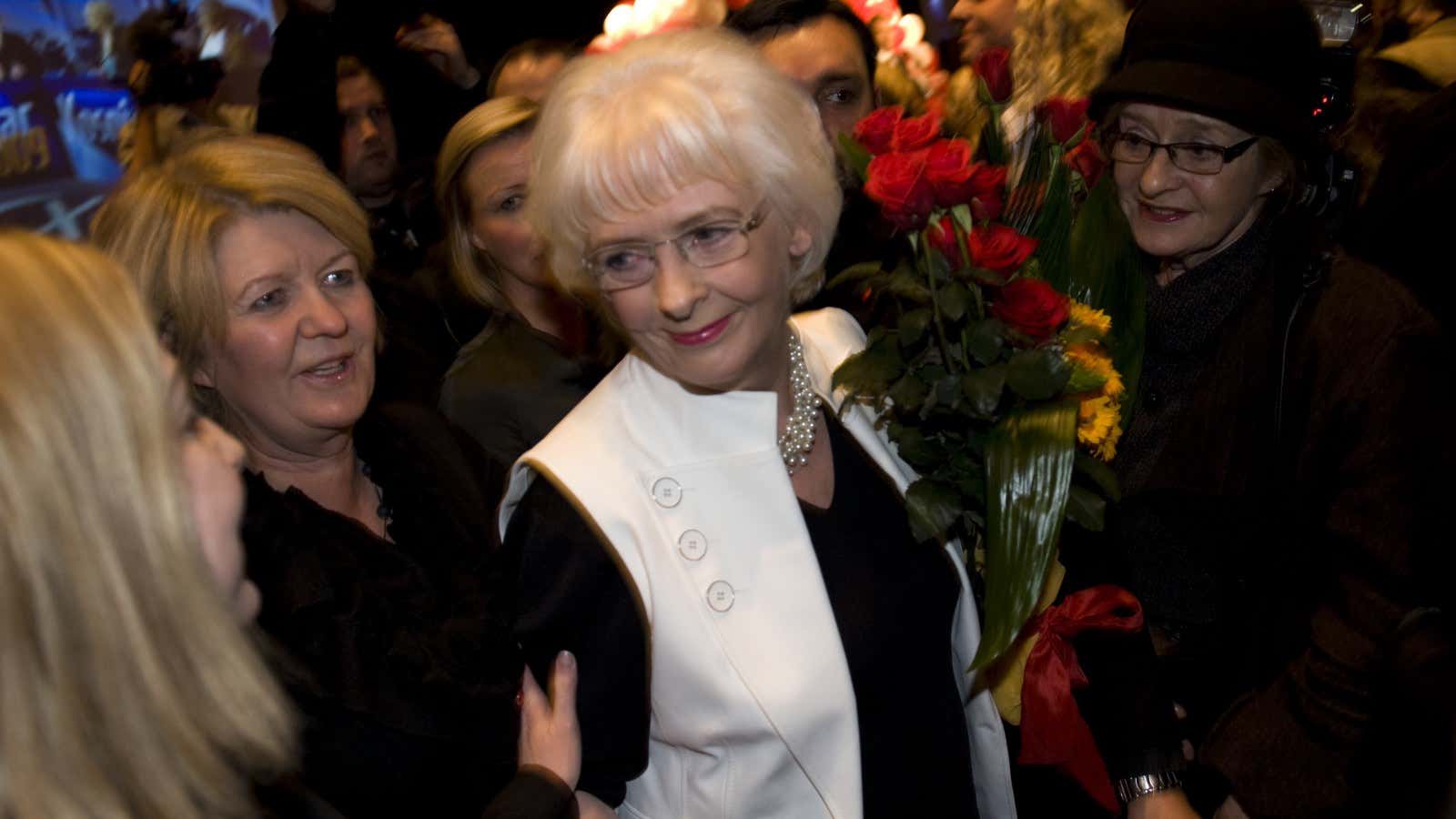Iceland has topped a huge survey (pdf) of gender balance every year for the past six years. And it’s not just maintaining a static lead while everyone else fails to catch up—it’s increased 10 percentage points in the last decade.
The head of the World Economic Forum’s gender equality campaign, which conducts the survey, thinks Iceland could be the first to close its gender gap completely. “They’re at 87% of the gap being closed right now,” Saadia Zahidi tells Quartz. “So they would be the first, if they continue at current rate of change” to hit 100%.
Iceland scores well on almost all fronts. It’s had a female head of state for 20 of the last 50 years, and women are well represented in politics, partly due to a voluntary quota system. They closed health and education gaps a long time ago. But where Iceland really stands out is in economic participation, Zahidi explains.
“It’s obviously a very small economy and talent, human capital, is very precious,” she says. “And so I think they have taken the approach where you don’t want to be wasting any of that talent, and you want to ensure that both women and men are able to combine their family or social obligations along with their ability to work.”
This deliberate prioritization both of fairness and also economic growth has ensured both women and men are able to participate, she says.
Other examples of gender-gap closures come from across countries, and companies. Japan, Rwanda, and Canada have seen high-profile policy changes in the last years. Even Saudi Arabia, which has one of the lowest scores in the world, has made some of the biggest relative strides forward in the recent months.
Companies including Facebook with paternity leave and Salesforce looking at wage gaps, have made headlines with their innovations in equality. But, Zahidi says, headlines aren’t enough.
“I think the way we will see real change is when we’ll go beyond the advocacy, and start moving to a phase where we are taking enough action that these particular factors are not necessarily the ones making headlines, because they’re not so rare any more,” Zahidi says.
“And I think we’re at the cusp of shifting from all of that awareness-raising, all of that advocacy, to actually moving towards smart interventions to fix the problem,” she adds.
The WEF runs Davos, the annual gathering of business people and heads of state on a Swiss mountaintop, which opens today and isn’t famous for diversity. But last year, the lack of female representation both at the conference and at the companies and governments attending was at the top of the agenda. Some might say, finally.
